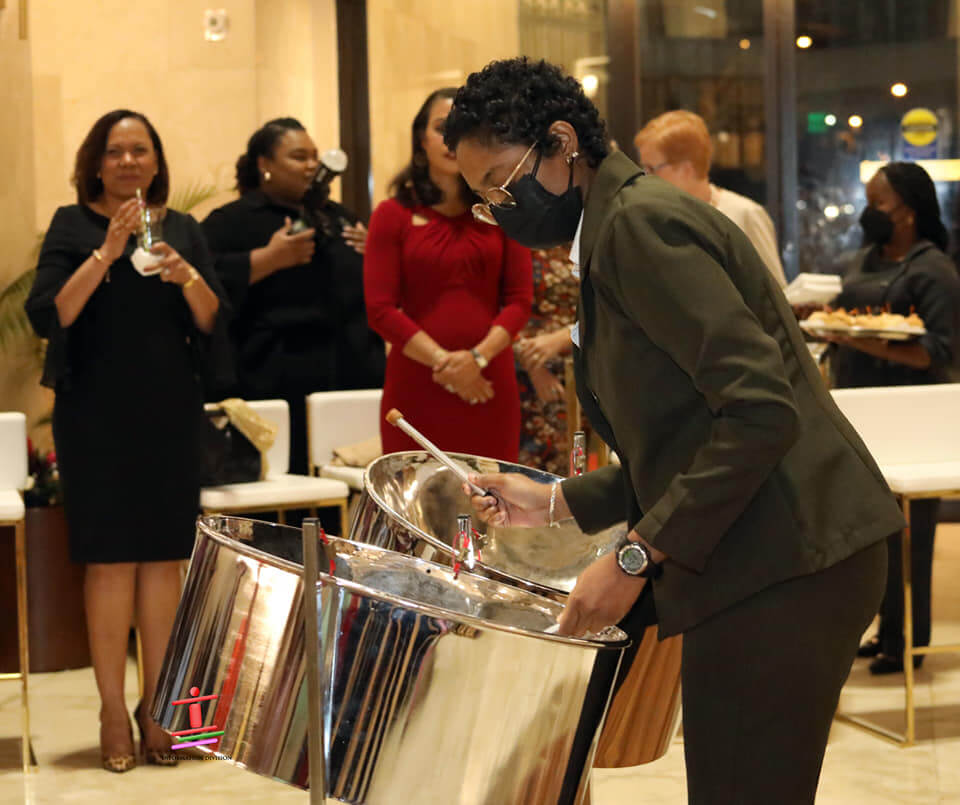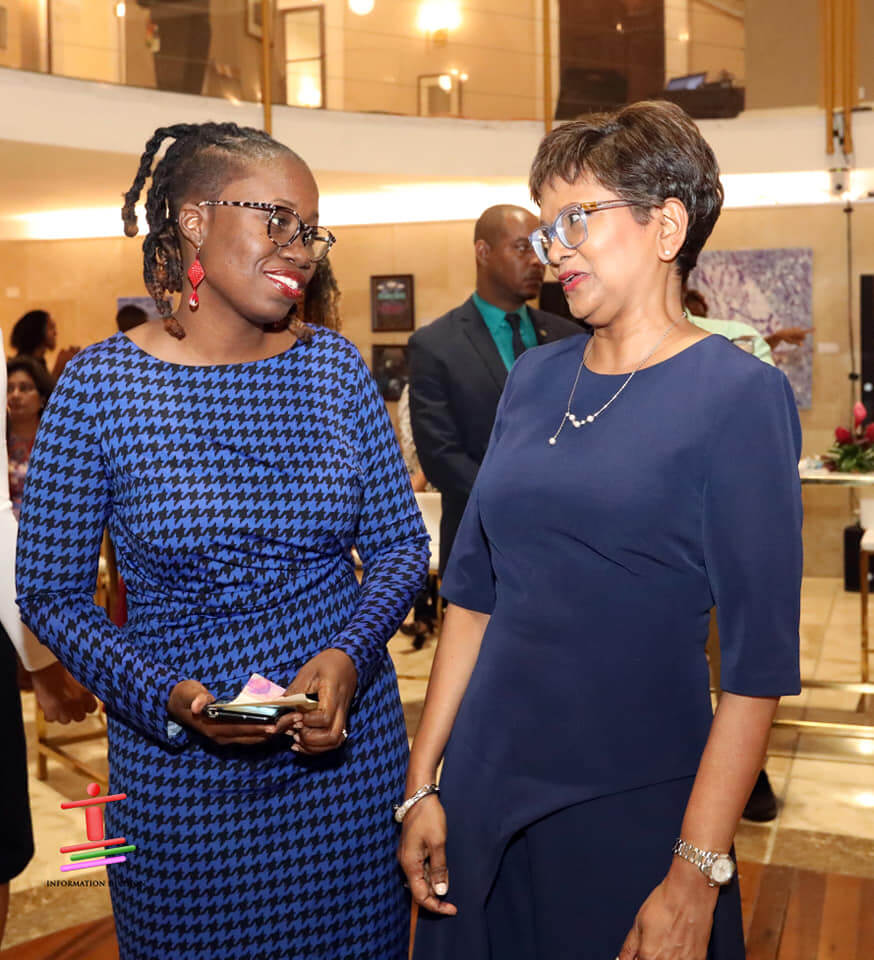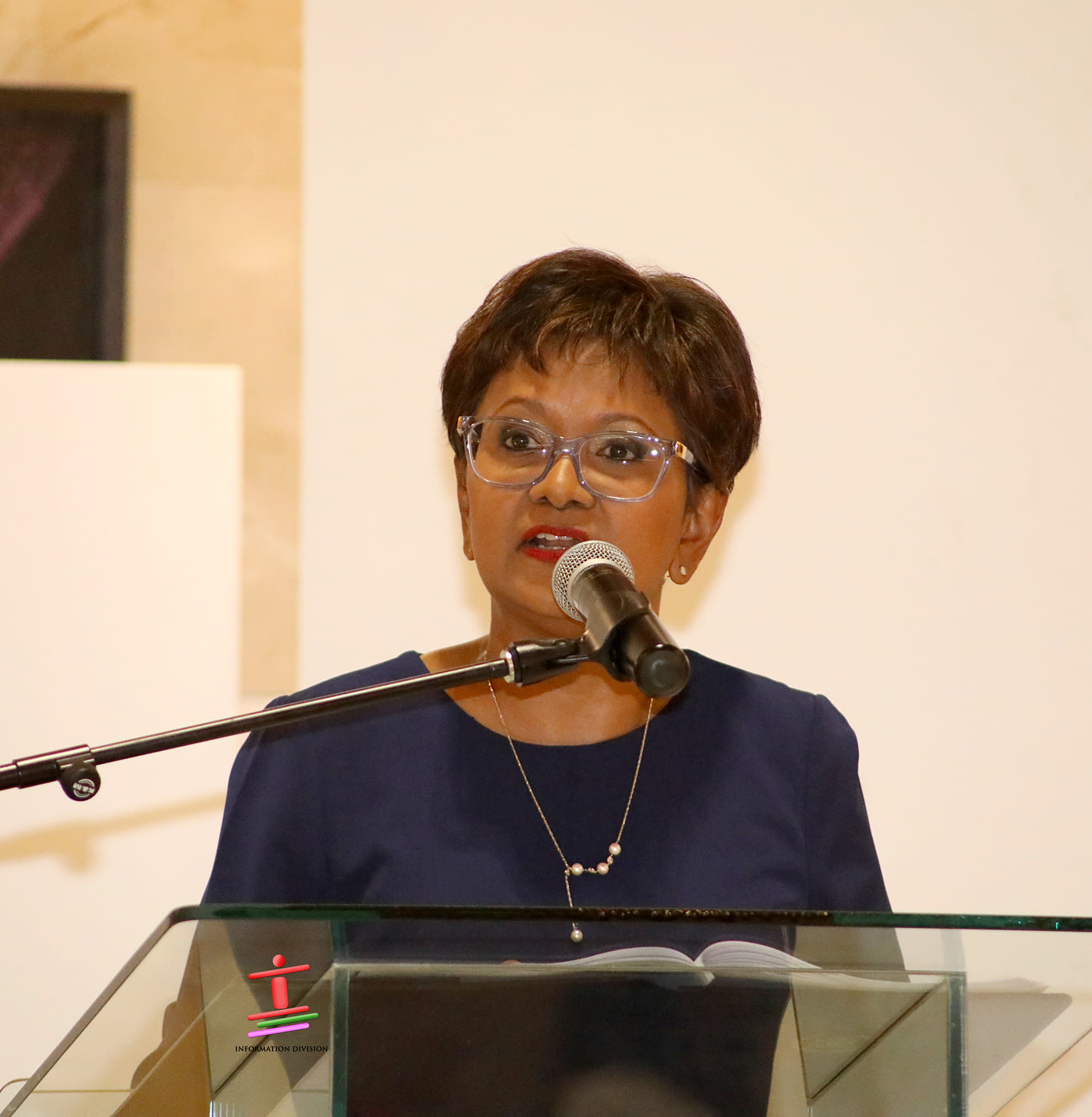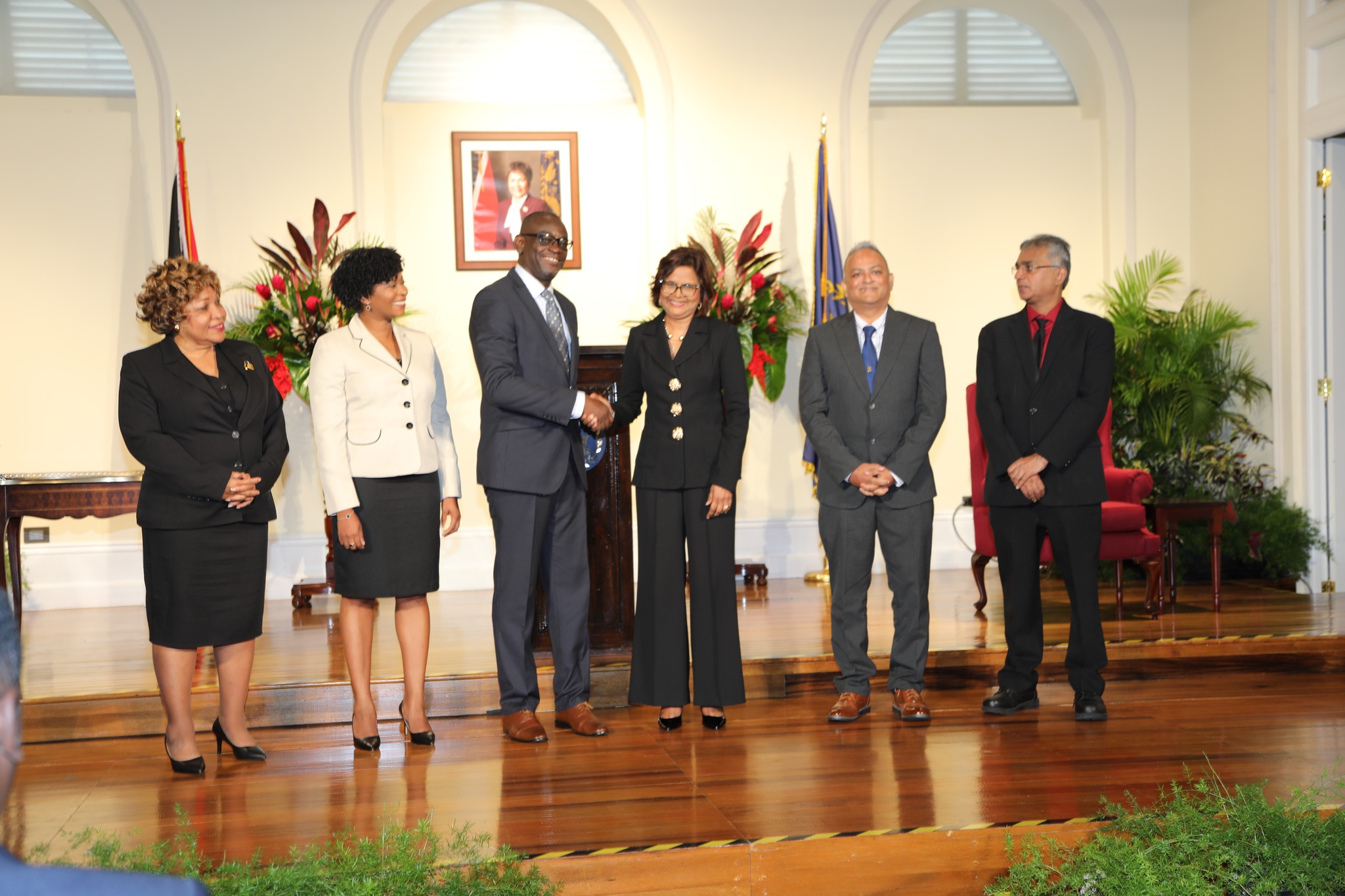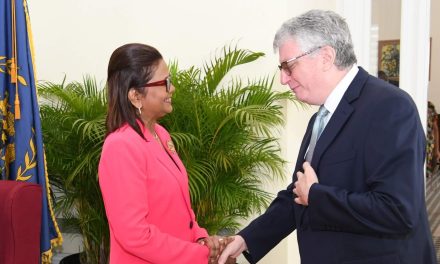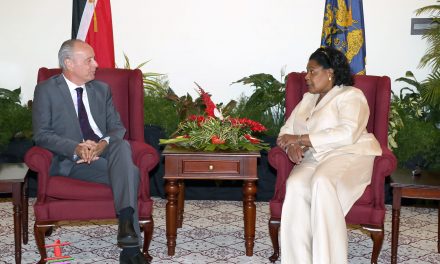Unfortunately for those disappointed souls – the answer is that nothing will. As I have said so many times of late – for the last 7 years, Parliament has been my “happy place”. And if that isn’t a good enough reason to draw me back to this place, then I plead Section 39 of the Constitution in my defence – Section 39 provides that “There shall be a Parliament of Trinidad and Tobago which shall consist of the President, the Senate and the House of Representatives”. So, as a matter of Constitutional obedience, my dear friends – like it or not, for the next 5 years, we are joined at the proverbial hip.
I am especially happy this evening to be joined at the hip with the Parliament in advocating for the establishment of a Parliamentary Group For Women Legislators. As Kofi Annan, the former United Nations Secretary General, once famously said: “there is no tool for development more effective than the empowerment of women.” Coalitions that draw together women who are a part of the legislative process, are therefore a critical component in the march towards gender equality. They are an indispensable element in our advancement and evolution as a nation.
For centuries, men have been at the forefront of all political and legislative endeavour. Understandably, therefore, legislative attitudes and outcomes have been shaped by an inescapable male gender-bias. With the emergence – recent, in historical terms – of women as co-participants in the political and legislative process, legislative attitudes and outcomes have, also understandably, begun to change.
Research carried out by the American non-profit organisation, the National Democratic Institute for International Affairs, confirms that ‘gender’ has a noticeable effect on policy-making and the setting of policy priorities. The data shows that women tend to prioritise education, health and other developmental indicators that have an impact on quality of life. It shows that women are also more likely to view governance as a means of serving under-represented groups, and are perceived as being more sensitive to community concerns and constituency needs. The data also shows that women are viewed as more likely to work across party lines, than men are.
The emergence of women as co-participants in the political and legislative process, has therefore been a positive development. Things have gone particularly well for us on this front in Trinidad and Tobago. When it comes to women in politics, we are, deservedly, the envy of many nations. We have had a female Prime Minister, female Presidents of the Senate, female Speakers of the House, and two female Presidents in succession. We have at various junctures met, and even surpassed, the vaunted ‘critical mass’ benchmark of 30% female parliamentary representation. At present, women comprise 34.2% of our entire parliament. In the Senate, they comprise 41.9% of the membership. In the House of Representatives, they comprise 28.5% of the membership. Both figures exceed the 26.2% global average of women representatives in national parliaments.
In terms of numerical advancements, it would therefore seem that we are doing reasonably well. Even using the yardstick of numbers, however, it should be obvious that work remains to be done. Since women comprise nearly 50% of our population, a 34.2 % parliamentary presence is still well below equal numerical representation. There is no good reason – at least none that I have heard – why equal numerical representation should not be attained.
But of course, what is even more important than the numbers – and here is where we have not been doing so well – are attitudes about the participation of women in the political and in the Parliamentary process. The support that is needed to maintain and expand such participation has been far from uniform, and has not always been forthcoming. This is where change is urgently needed.
It is both lamentable and unforgiveable that, even today – in the 21st century – decades after they have cemented themselves as a permanent part of the legislative landscape, women Parliamentarians continue to be subjected to gender-based ridicule and contempt. They continue to be objectified and demeaned on the basis of their sex.
I recall when Madame Speaker and I were made the subjects of a particularly vile and offensive gender-based attack on social media. What stood out in that attack, was that the attack never once condescended to any particulars about our ability, but was based solely on our gender.
As unsettling as that kind of behaviour is, it is but an example of the kind of misogyny that women who are involved in the parliamentary process worldwide, face. Madame Speaker and I were not unique. Women are routinely subjected to gender-based attacks of one stripe or another, in which ugly insinuations are made about our ability to function independently of feminine wiles and charms; and about our having advanced to the positions that we hold, only because we have deployed them.
This is why a female caucus, in the way of a Parliamentary Group For Women Legislators, is so important today. Women need to unite, if only to fight for themselves. We ought not to be leaving, entirely to men, the fight for our equal treatment. To the credit of the majority of our male counterparts, men have made significant strides in supporting our participation in Parliamentary work. But ultimately, it is women who need to also take up the battle in defence of women.
One of the things that struck me during that unfortunate episode involving the social media attack on Madame Speaker and me, was the silence of civil society and in particular, of women’s groups on the matter. Both estates – civil society and women’s groups – certainly play a critical role in redressing centuries-old, entrenched gender-imbalances. But when their advocacy stretches them to the limits, and they are unable to join in the specific struggles that women Parliamentarians face, it is up to women Parliamentarians to fend for themselves.
Putting the same point the other way round, it seems to me that, in today’s environment, Parliament can hardly afford not to have a caucus of Women Legislators. Silence is not a viable option.
I believe, respectfully, that women Parliamentarians need to appreciate that they are leaders in their own right. I think that they need to understand that they are real-life heroines, to thousands of young women and men. And I think that they need to realise that, with their elevated status, comes a heightened responsibility to those young women and men. When women Parliamentarians do not act collectively in their own interest, there is a ripple effect in the wider society.
If female Members of Parliament, who have a platform and a voice, do not form themselves into a caucus to stand up against, but instead stay silent and remain voiceless in the face of sexist attitudes and behaviours, then what is the young woman working in a bar supposed to believe are her chances of prevailing against a customer who thinks he has the right to grab her? What is the young school-girl supposed to think are her chances of actually being heard about the lewd and disgusting suggestions that are made to her in a taxi? And what is the young university graduate, who is starting her first job, supposed to believe are her chances of getting justice against the bosses who sexually harass her? If their heroines remain ineffectual against these and other injustices in the Parliament, how can they hope to do better in their daily lives?
While, to some women Parliamentarians, it might seem that the choice of whether or not to participate in a women’s caucus, is theirs and theirs alone, unfortunately, the consequences of opting out of such coalitions, are not theirs and theirs alone. The entire body politic is affected. Coalitions such as a caucus of Women Legislators, can be likened to medicine to an ailing body – we can choose not to take it, but the price of us doing so only prolongs the body’s illness.
Melinda Gates is reported to have said that: ‘women are not just victims of a broken world; they can be architects of a better one.’ I consider this to be a most trenchant observation, as Parliament launches this Group For Women Legislators. I suggest that women legislators need urgently to unite, across the aisles, to become collective architects of a better Parliament, and of a better society. According to ParlAmericas, women’s parliamentary caucuses can promote women’s descriptive and substantive representation; ensure the mainstreaming of gender equality issues into legislative and policy processes; influence policy and legislative agendas through cross-party cooperation; facilitate dialogue within and across parties; and provide training and support to their members. I can hardly think of more compelling reasons for women Parliamentarians to participate in the Parliamentary Group For Women Legislators that is being formally launched this evening.
I am therefore very pleased to have been invited back to my happy place to speak to you this evening, on the occasion of the launch of this Group. A parliamentary women’s caucus is a significant and timely initiative that signals this country’s readiness to #embrace equity and achieve the targets of the United Nations’ Sustainable Development Agenda, gender equality being one of them. I commend all parties involved in getting this project off the ground—your herculean efforts will undoubtedly one day redound to the benefit of the nation as a whole.
I would like to suggest that all of us have a duty to encourage more women and girls to aspire to political office and public life, for their benefit as well as that of the entire national community. And I would like to suggest that women Parliamentarians are especially well-placed to do so. I believe that this Parliamentary Group For Women Legislators has a critical part to play in tearing down the lingering barriers to women’s full and equitable participation in the parliamentary process in particular, and in strengthening the cooperation among women engaged in public life in general. I therefore stand in Section 39 solidarity with this initiative, and I wish this Group every success.
I leave you with the words of the cultural anthropologist and trailblazer Margaret Mead, who once warned: “Never doubt that a small group of thoughtful, committed citizens can change the world; indeed, it’s the only thing that ever has.” May those who participate in this Parliamentary Group For Women Legislators, change the world.
Thank you.




